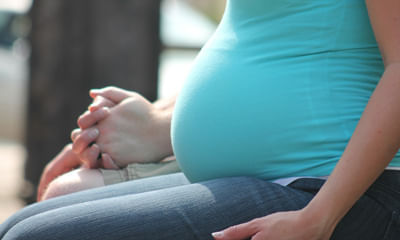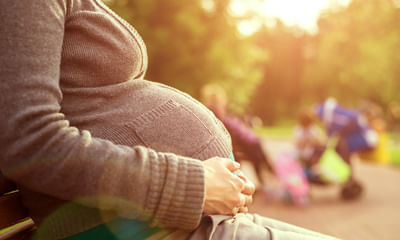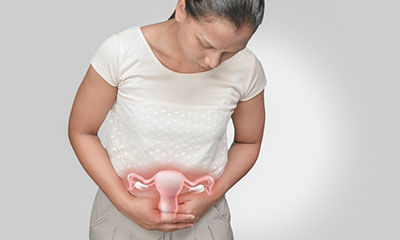1 Week Pregnant Signs
I'm a 23 year old female. I had unprotected sex with my boyfriend continuously for a week. After the first time and thir ...
Ask Free Question
I am sorry to hear about your concern but will be happy to assist you. Even missing a period isn't always a clear sign, especially if you're on hormonal birth control, which can change or even get rid of your period while you're using it. That's why the only way to know for sure if you're pregnant is to take a pregnancy test. Let's connect over a call so that we can discuss your concern in details and make a suitable treatment plan for you.
I am 8 weeks pregnant. Im on enaxparin 40 n ecosprin 75 due to my previous abortion history. Now today I went for scan e ...
Ask Free Question
I feel you should not stop ecosprin altogether. But be very very vigilant about any sign of bleeding. Ecosprin can be taken on alternate days for a week and a repeat scan can be done. That will show whether the rim is shrinking or increasing in size. Some deep breathing exercises like pranayam and proning help to increase the oxygen level. It will help your baby.
Had last period on dec 16, currently showing no signs of a period. I am feeling completely normal, no symptoms at all. I ...
Ask Free Question
Hello, covid itself can cause delay in menses however to rule out pregnancy you may get a serum beta hcg test done.
Does the uterus wall thickens when 8 weeks pregnant? I wanna know as I got an abdomen ultrasound when I was having pregn ...
Ask Free Question
The normal thickness of the endometrium changes throughout a person’s life, from childhood, through to sexual maturity, fertile years, and after menopause. Medicalnewstoday uses cookies to improve your experience and to show you personalized ads. Privacy policy. More information what to know about endometrial thickness medically reviewed by valinda riggins nwadike, md, mph — written by danielle dresden on november 19, 2019 normal thickness measurement causes of thin or thick lining symptoms treatments seeing a doctor outlook the endometrium is the lining of the uterus. It is one of the few organs in the human body that changes in size every month throughout a person’s fertile years. Each month, as part of the menstrual cycle, the body prepares the endometrium to host an embryo. Endometrial thickness increases and decreases during the process. Two hormones, estrogen and progesterone, prompt these cycles of endometrial growth and its shedding through menstruation if a pregnancy does not develop. In this article, we look at the normal range for endometrial thickness, causes of changes, and when to see a doctor. Normal thickness a healthcare provider may measure the thickness of the endometrium with an ultrasound. The normal thickness of the endometrium changes throughout a person’s life, from childhood, through to sexual maturity, fertile years, and after menopause. In imaging tests of young females who have not yet begun menstruating, the endometrium is present but smaller than it will be later in life. According to the radiological society of north america (rsna), the endometrium is at its thinnest during menstruation, when it usually measures between 2–4 millimeters (mm) in thickness. The first half of the proliferative phase starts around day 6 to 14 of a person’s cycle, or the time between the end of one menstrual cycle, when bleeding stops, and before ovulation. At this phase, the endometrium begins to thicken and may measure between 5–7 mm. As the cycle progresses and moves towards ovulation, the endometrium grows thicker, up to about 11 mm. About 14 days into a person’s cycle, hormones trigger the release of an egg. During this secretory phase, endometrial thickness is at its greatest and can reach 16 mm. Pregnancy endometrial thickness is important in pregnancy. Healthcare experts link the best chances for a healthy, full-term pregnancy to an endometrium that is neither too thin nor too thick. This allows the embryo to implant successfully and receive the nutrition it needs. The endometrium gets thicker as the pregnancy progresses. Menopause the rsna also state that in healthy postmenopausal people, the endometrium typically measures about 5 mm or less. How to measure ultrasound is the most common way to measure the thickness of the endometrium. It is the method that healthcare providers use first, especially if an individual has reported abnormal vaginal bleeding. When ultrasound is not suitable, often due to the position of a person’s uterus or other health conditions, doctors use mri. Causes of a very thin or thick endometrial lining the thickness of the endometrium changes during a person’s menstrual cycle, but other factors can prompt changes as well. One of the more common causes of changes in endometrial thickness is pregnancy. Women who are having an ectopic pregnancy or who are less than 5 weeks pregnant may show signs of a thickening endometrium. Cancer of the endometrium or the ovaries is one of the most severe conditions that can lead to an increase in endometrial thickness. According to the american cancer societytrusted source, endometrial cancer is the most common cancer affecting a person’s reproductive systems. Developing more often in white people than african american people, endometrial cancer is rare in females under 45. The average age at diagnosis is 60. Other factors contributing to a greater thickness of the endometrium include: obesity hormone replacement therapy (hrt) tamoxifen chronic high blood pressure endometrial polyps diabetes scar tissue endometrial hyperplasia.
I had a miscarriage in february at 13 weeks, the gestation maturity was 7 weeks 5 days, although usg done in january at ...
Ask Free Question
Your first pregnancy was abnormal sonologically with a low fetal heart rate of 110. But the present pregnancy seems to be normal with a sonological finding of 164-170 fetal herat and corresponding size of gestational sac. Other positive contributing factors sonologically are good trophoblastic reaction, regularity of the gestational sac. Instead a suchorionic hemorrhage is a bad sign. The amplitude of heart beat at 7 wks, not significant. Any way you are getting good treatment now.
Hello Dr. My age 19, before two weeks (26th aug) I have done unprotected sex with my partner first time. And after 3 hou ...
Ask Free Question
After taking the high hormonal emergency pill like I pill one gets withdrawal bleeding 5 to 10 days later, and then a new cycle starts. And as per information given by you you had, meaning no pregnancy. However if you have doubt you can always do pregnancy test of urine or blood.
Sir, my wife last period is on 11th july night (10 pm) and it lasts for 4 days .normally her period is 30-33 days ,we ar ...
Ask Free Question
Yes, its possible as that was roughly her ovulation day. Do serum beta hcg test as soon as miss period or urine pregnancy test 10 days after missing period to find out.
I am 31 years and suffering with pcos & as I under gone 6 times of iui now I am 15 weeks pregnant but facing a issue of ...
Ask Free Question
It may be the side effect of the injection. Your doctor can tell this best. These are individalised things and requires thorough followup. Get your estrogen progesterone levels done. Consult your doctor.
I am having pcod. I took novelon but still not getting my period it's been 7 days late. Am I pregnant? And trying for si ...
Ask Free Question
You would not become pregnant, when you are novelon. Wait for one more week for the periods.
My wife is till now 9 weeks 2 days of pregnant. These days she is facing like too much vomiting, headache, gases, lower ...
Ask Free Question
These all are common symptoms in early pregnancy which almost everyone faces. So don't worry or take stress. Get your medicines adjusted ,then you will be fine get ultrasound done if not yet done.







